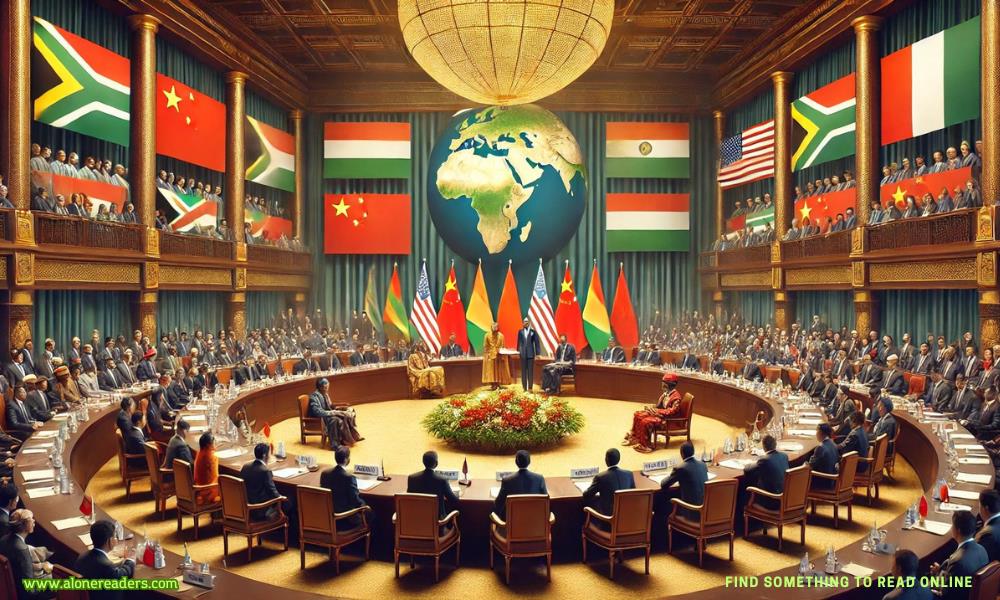
China’s growing presence in Africa reached a new milestone as President Xi Jinping hosted the latest China-Africa Summit. The event, held in Beijing, attracted leaders from across the African continent, showcasing the depth of political and economic ties between China and African nations. The U.S., a long-time economic player in Africa, is watching closely as Beijing strengthens its influence through investments, infrastructure projects, and diplomatic outreach. The summit highlights China’s strategic interest in Africa’s resources, markets, and geopolitical positioning, raising questions about how the U.S. will respond to China’s expanding footprint.
China's relationship with Africa has been steadily evolving for decades. However, the China-Africa Summit further solidified this bond, focusing on shared economic development and mutual prosperity. Xi Jinping opened the summit by emphasizing China’s commitment to Africa’s growth, including substantial investments in infrastructure, technology, and energy. Over the past two decades, China has emerged as Africa’s largest trading partner, with bilateral trade surpassing $250 billion in 2023 alone. Major Chinese investments in Africa range from highways and railways to power plants and telecommunications, which have spurred growth in several African nations.
For China, Africa is more than just a trading partner. It is a strategic region rich in natural resources such as oil, minerals, and rare earth elements critical for China’s industrial sector. Additionally, African nations offer new markets for Chinese goods, helping to fuel China’s export-driven economy. At the summit, Xi emphasized the importance of China-Africa relations in fostering a multipolar world and reducing Africa’s dependence on traditional Western powers, particularly the United States and Europe.
Infrastructure development has been at the heart of China's engagement with Africa. Through the Belt and Road Initiative (BRI), China has funded and built major projects such as the Standard Gauge Railway in Kenya and ports in Tanzania and Djibouti. These projects are seen as key to unlocking Africa’s economic potential by improving connectivity and reducing the cost of trade within the continent and beyond.
In the latest summit, Xi announced an additional $60 billion in development financing for African nations, largely focused on infrastructure, energy, and agriculture. Chinese state-owned enterprises are heavily involved in building roads, railways, and ports across the continent, providing much-needed development and boosting China’s influence. However, critics argue that these investments come with strings attached, including debt dependency and increased political influence in Africa. There is growing concern over the long-term implications of African countries accumulating significant debt from Chinese loans, with some analysts referring to this as a form of “debt-trap diplomacy.”
As China expands its presence in Africa, the United States has become increasingly concerned about its own role in the region. Washington has historically been one of the primary economic and diplomatic actors in Africa, providing foreign aid and investing in key sectors such as health, security, and education. However, China’s rise as Africa’s largest investor has shifted the balance of power.
In response, the Biden administration has pledged to renew America’s engagement with Africa, recognizing the geopolitical stakes at play. The U.S. is seeking to counter China’s influence through initiatives like the Prosper Africa program, which aims to boost American private-sector investment across the continent. Secretary of State Antony Blinken recently underscored America’s commitment to Africa during visits to several African countries, emphasizing the U.S. vision of a partnership based on “shared values” and respect for sovereignty, in contrast to what some American officials have described as China’s exploitative practices.
Despite this rhetoric, the U.S. finds itself in a challenging position. While American firms continue to invest in Africa, the scale and scope of these investments are dwarfed by China’s financial commitments. Moreover, China’s no-strings-attached approach to development aid contrasts sharply with the U.S.’s emphasis on political reforms and governance, making Chinese assistance more attractive to some African leaders.
Africa’s increasing importance on the global stage is undeniable. The continent, home to over 1.2 billion people, is rich in resources and is one of the fastest-growing regions in terms of population and economic development. Both China and the U.S. recognize Africa’s potential to shape the future global economy and are competing for influence accordingly.
At the summit, Xi Jinping made it clear that China sees Africa as a key partner in its vision for a multipolar world, where no single power dominates the global order. African leaders have welcomed China’s approach, which focuses on mutual respect and win-win cooperation, without the historical baggage associated with Western colonialism. As African nations diversify their international relationships, they are finding themselves at the center of a new geopolitical competition between major powers.
The U.S., however, views China’s growing influence in Africa through a different lens. While Washington acknowledges the need for African development, there are concerns that China’s investments could undermine democratic institutions and fuel corruption. Additionally, China’s military presence in Africa, particularly its naval base in Djibouti, has raised alarm bells in Washington, which views this as a potential threat to U.S. interests in the region.
Conclusion: The Road Ahead for China-Africa Relations
As the China-Africa Summit comes to a close, the future of the relationship between China and Africa seems promising, albeit complex. China’s focus on infrastructure, investment, and trade will likely continue to strengthen its ties with African nations. However, the U.S. is keen to maintain its influence in the region, and the next few years could see increased competition for Africa’s loyalty and resources.
For African leaders, the challenge will be to balance these competing interests to ensure that their countries benefit from foreign investments without becoming too dependent on any single external power. As the world watches this geopolitical chess game unfold, Africa’s role in the global economy will only grow in significance, with China and the U.S. vying for dominance in this crucial region.